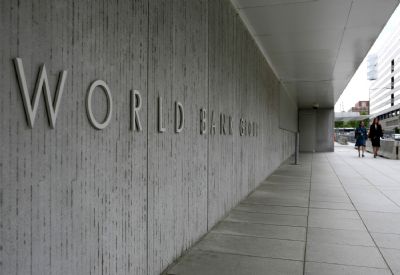"Billions of pounds of British aid cash is 'dumped' every year into trust funds operated by the World Bank in order to meet the controversial aid target.
The UK has channelled £9billion in this way over the past five years and in the process was charged £241million in administration fees by the bank.
Experts said yesterday the money was being funnelled through these trust funds to ensure the UK meets the annual aim of spending 0.7 per cent of national income on helping the developing world. In some cases, the money sits there for years. It is believed £4billion the UK has contributed is still to be spent.
Much of the cash goes towards consultancy fees, staff costs and travel expenses – including business class flights. Yesterday the most senior civil servant at the aid department denied the money was simply dumped.
Mark Lowcock, permanent secretary at the Department for International Development, told MPs the cash is given to the bank in the form of 'promissory notes' – which means money is only paid out when it is used. International Development Secretary Priti Patel also said she wanted to see more transparency from the Bank about how money was spent.
According to The Times, Britain is the second largest contributor to the World Bank's trust funds, which have been repeatedly criticised for a lack of transparency and effectiveness. Over the past five years, the Government has channelled at least £9billion into 219 different trusts, more than any country apart from the US. Germany spends far less.
Aid consultant James Morton said: 'DfID dumps large sums into trust funds and accounts for it as spent against a given year's UK aid budget.
'Judging by the large balances the World Bank and the United Nations hold, some of the money then sits there for years.'
About £17.5billion is sitting in trusts to which Britain has contributed. Of this, the UK's share is about £4billion, according to an analysis of its accounts. Last year the World Bank received £3.3billion from Britain.
Many trusts run by the bank continue to accept donations despite retaining a large proportion of their funds, an analysis shows.
In 2004, Britain gave $15million to a trust set up to fund small businesses in Iraq, while the US gave $10million.
More than a decade later, half of the sum remains in the trust with no money having been paid out for at least five years. In 2011 the World Bank's independent regulator warned of 'significant shortcomings' in the way trust fund resources were distributed.
The DfID said the bank 'must work harder and smarter' in the way it uses money from British taxpayers.
A spokesman said: 'Britain is challenging the bank to focus its support on those who need it most, ensuring the world's poorest are not blocked from the opportunities they need to stand on their own two feet.
'That is why we are using our position in the bank to push for significant reforms that work for Britain and the world's poorest.'"
December 19, 2016
Charge: World Bank & UN "dumping" ground for non-transparent billions

World Bank Group building
Date
December 19, 2016
Title
£9 billion ‘dumped’ in the World Bank so the UK can hit its controversial aid target as the taxpayer is charged £241 million to administer donations, Daily Mail
Author(s)
Daniel Martin
